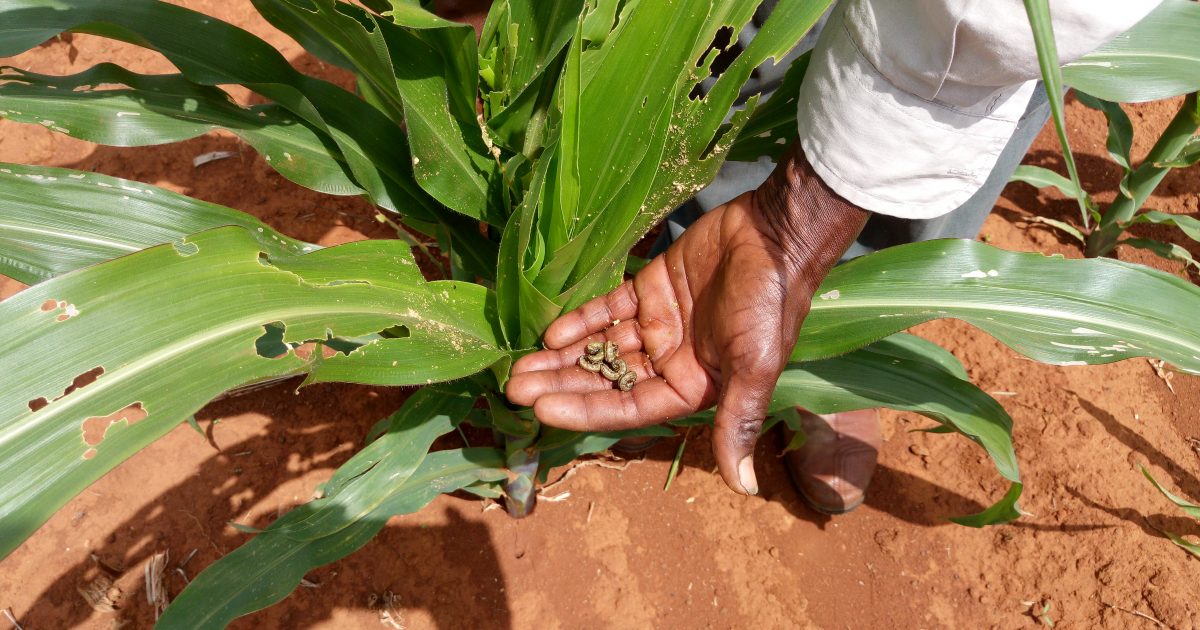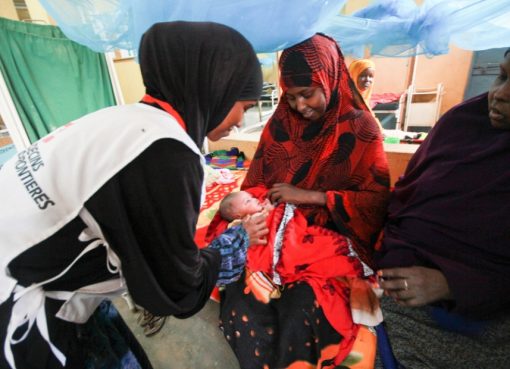State Department for Crop Development Principal Secretary (PS) Kello Harsama has called for regional collaboration among the neighbouring countries in order to combat the African army worm menace.
Mr. Harsama said the collaborative efforts among neighbouring states are critical for effective management of the pests because delayed control can lead to 100 per cent destruction of crops and pasture.
“Emergency response to African armyworm outbreaks is therefore necessary to safeguard food and nutrition security, which is one of the critical goals of the Kenyan government’s development agenda,” the PS said.
The PS said Kenya has just come from the worst desert locust invasion in over 70 years that threatened farmers` lives and livelihoods in over 28 counties, and therefore timely and collaborative efforts to combat the African armyworm will go a long way in enhancing food security in the region.
“African armyworm has re-emerged with as much threat to food and nutrition security after several years without reports of African armyworm outbreaks, where Kenya had 36 counties affected by the first wave that occurred between February and August 2022,” he said.
He noted that the second wave of the African Armyworm outbreak started in November 2022 and has so far affected 23 counties in the country.
The remarks were contained in a speech read on his behalf by the Secretary Administration in the State Department for Crop Development, Joseph Kirubi, during the launch of the African Armyworm Management Project and a regional Trainer of Trainers (TOT) Course on this destructive pest in Naivasha on Thursday.
The function is being attended by the Food and Agriculture Organization (FAO) Kenya representative, Ms. Mucavi Carla, and her Ethiopian counterpart, Mr. Abera Haile.
FAO Director for Plant and Food Production Division, Mr. Xia Jingyuan, addressed the meeting via Zoom.
Others include representatives from 23 counties affected by the army worm threat and representatives from six East African countries of Uganda, Somalia, Ethiopia, South Sudan, Rwanda, and Eritrea.
The PS revealed that Kenya has carried out surveillance on about 1,122,583 hectares (Ha), out of which 296,679 hectares were found to be affected by African armyworm. The country has however managed to effectively manage 173,284 Ha through ground spraying.
Harsama reiterated that rapid response and timely action against African armyworm outbreaks require the concerted efforts of affected countries and development partners, adding that the African armyworm is a trans-national migratory pest of economic importance due to its high reproductive capacity, rapid development, and high mobility.
To this end, the PS said the regional training of TOTs will go a long way in equipping participants with the requisite knowledge and skills that will be cascaded down to regions, districts, and counties to support surveillance, forecasting, early warning, and control.
He reaffirmed Kenya`s commitment to coordinate African armyworm management with other countries and development partners and give budgetary support to counties to fight threats to food security.
Mr. Kirubi said they were working to create a critical mass of capacity in the counties up to village level in a bid to stem the armyworms, which are a big risk to food security.
“We are confident that from July we shall have a budget to effectively respond to this menace,” he said.
The Director of Plant Protection and Food Safety in the Ministry of Agriculture and Livestock Development, Collins Marangu, said the armyworm threat had initially been reported in 36 counties but is now in 23 and assured Kenyans that the government is managing the pest regionally, which is the most effective way.
Latest data from the Ministry of Agriculture and Livestock Development shows there might be an extraordinary worsening in Kenya’s food security situation, with over 5.4 million people experiencing acute food insecurity between March and June this year, especially in arid and Semi-Arid (ASAL) areas, and likely to deepen in the following months.
By Mabel Keya –Shikuku





